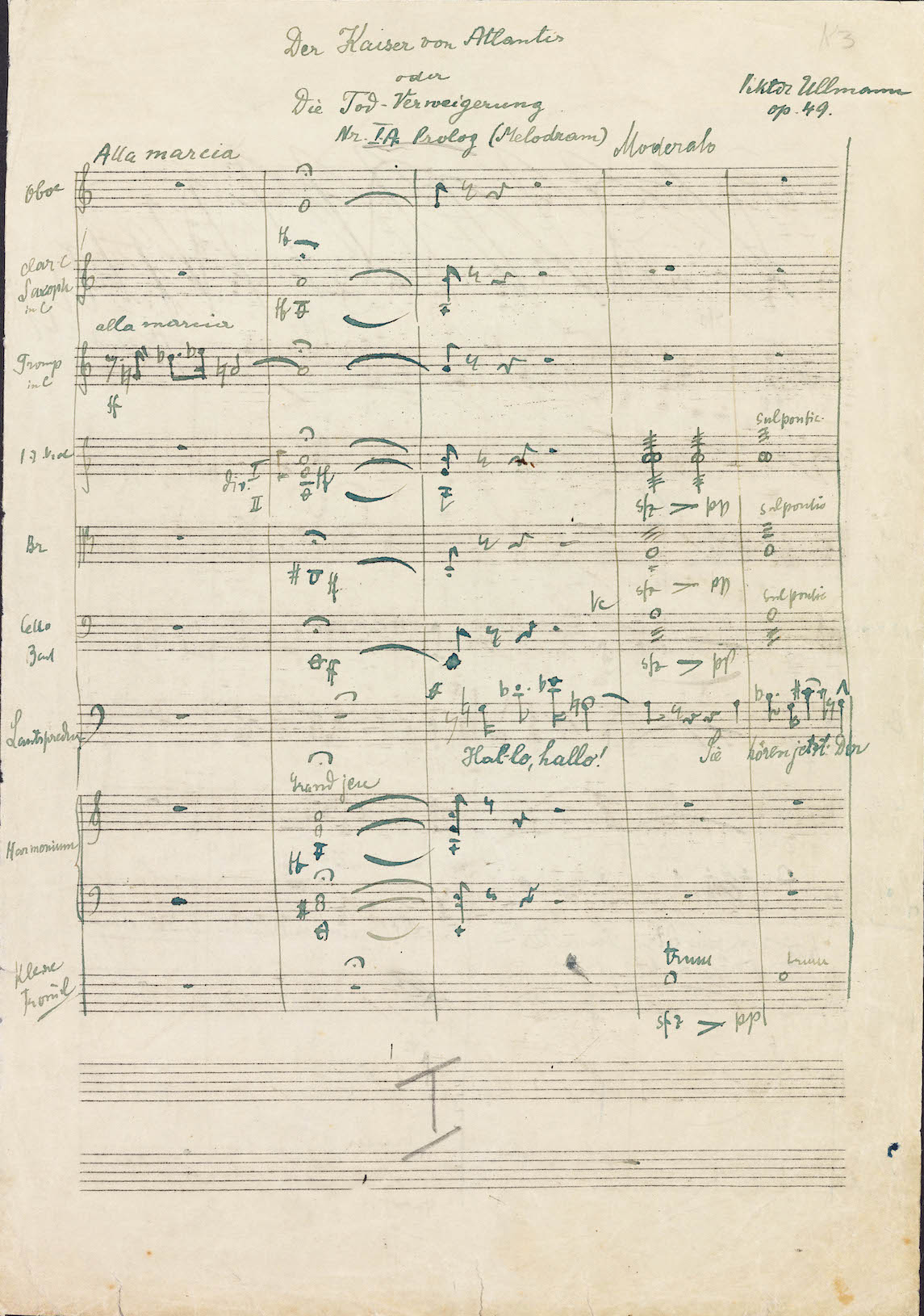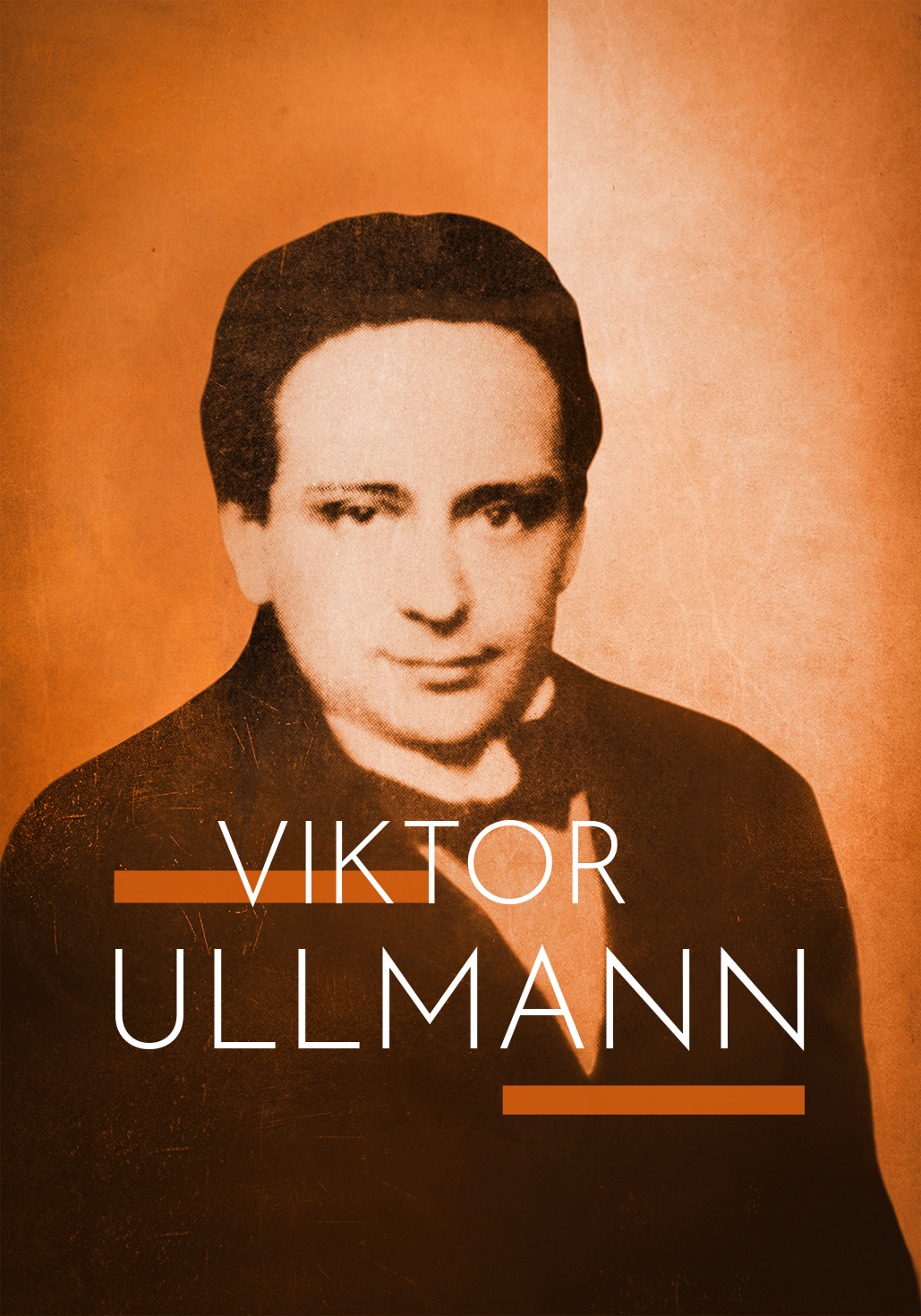1 I 1898, Cieszyn (today’s Poland) — 18 X 1944, KL Auschwitz-Birkenau
Biography
Viktor Ullmann was a pianist, composer, and conductor. He was one of the main organizers of musical life in the Terezín ghetto (Theresienstadt) where he composed many works, including the opera The Emperor of Atlantis or Death’s Refusal.
He was born on 1 January 1898 to a family of assimilated Jews in Cieszyn, then part of the Austro-Hungarian Empire. He was baptized in the Catholic Church. In 1909, he began to attend a music school in Vienna, where he found a mentor in the avante-garde composer, Arnold Schönberg. Viktor Ullmann served in the military during World War I.
After the war, he began studying law and attended Schönberg’s composition seminar. In 1919, he moved to Prague to devote himself fully to music and work in the New German Theatre. He also worked for Czech Radio and published articles and press reviews while attending the Prague Conservatory.
When Germany annexed Bohemia and Moravia, Viktor Ullmann had to contend with the restrictions imposed on all people of Jewish descent. On 8 September 1942, he was deported to the ghetto in Terezín (Theresienstadt) where he was active in the camp’s cultural life, organizing concerts, playing the piano, and composing such works as the opera Der Kaiser von Atlantis oder die Tod-Verweigerung (‘The Emperor of Atlantis or Death’s Refusal’). On 16 October 1944, he was deported to the Auschwitz-Birkenau concentration camp, where he died in the gas chamber two days later.
Viktor Ullmann was a pianist, composer, and conductor. He was one of the main organizers of musical life in the Terezín ghetto (Theresienstadt) where he composed many works, including the opera The Emperor of Atlantis or Death’s Refusal.
He was born on 1 January 1898 to a family of assimilated Jews in Cieszyn, then part of the Austro-Hungarian Empire. He was baptized in the Catholic Church. In 1909, he began to attend a music school in Vienna, where he found a mentor in the avante-garde composer, Arnold Schönberg. Viktor Ullmann served in the military during World War I.
After the war, he began studying law and attended Schönberg’s composition seminar. In 1919, he moved to Prague to devote himself fully to music and work in the New German Theatre. He also worked for Czech Radio and published articles and press reviews while attending the Prague Conservatory.
When Germany annexed Bohemia and Moravia, Viktor Ullmann had to contend with the restrictions imposed on all people of Jewish descent. On 8 September 1942, he was deported to the ghetto in Terezín (Theresienstadt) where he was active in the camp’s cultural life, organizing concerts, playing the piano, and composing such works as the opera Der Kaiser von Atlantis oder die Tod-Verweigerung (‘The Emperor of Atlantis or Death’s Refusal’). On 16 October 1944, he was deported to the Auschwitz-Birkenau concentration camp, where he died in the gas chamber two days later.
—
Parts I and V of 7th Piano Sonata
Violin: Marcin Markowicz, Beata Wołczyk
Viola: Monika Młynarczyk
Cello: Jan Skopowski
Double bass: Tomasz Borski
Arrangement for a string quintet: Ronen Nissan
Recording from an „Unfinished Lives” concert in the White Stork Synagogue in Wrocław on 9 November 2016.
Tod und Harlekin („Death and Harlequin”)
—
Part of the Emperor of Atlantis score written in Theresienstadt, noted by Karel Berman.
Scans of the score were gifted to the exhibition by Terezin Memorial.
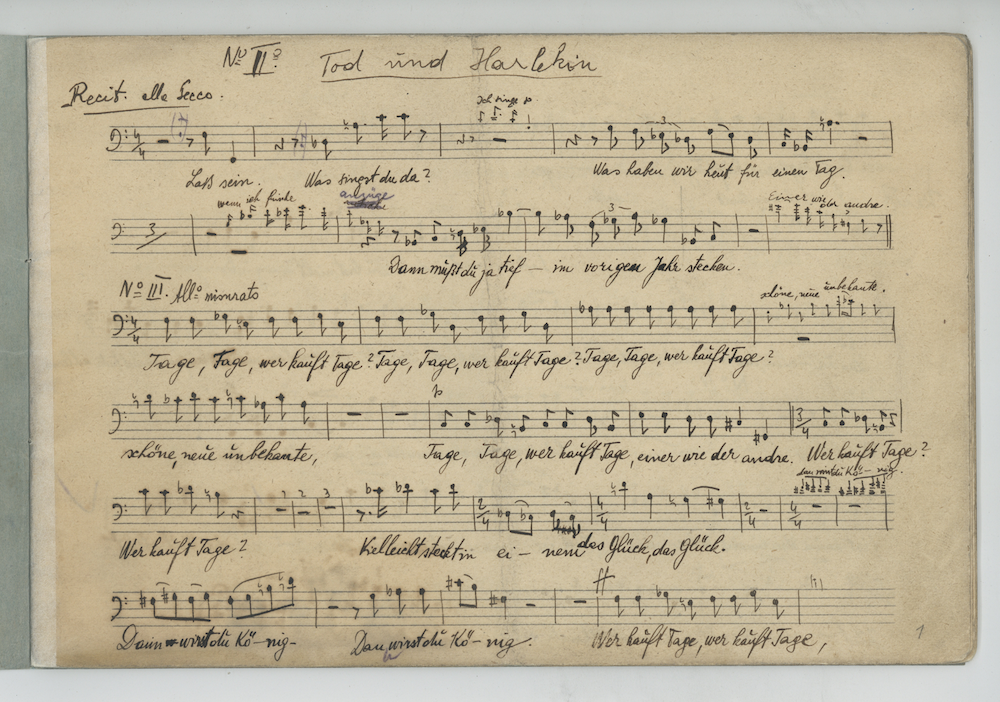
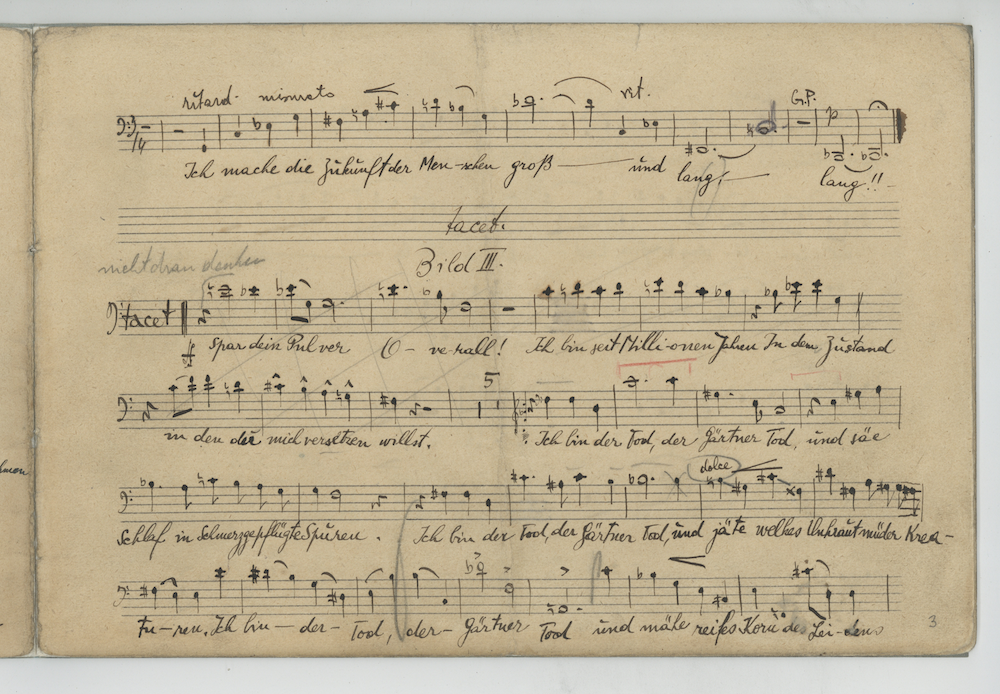
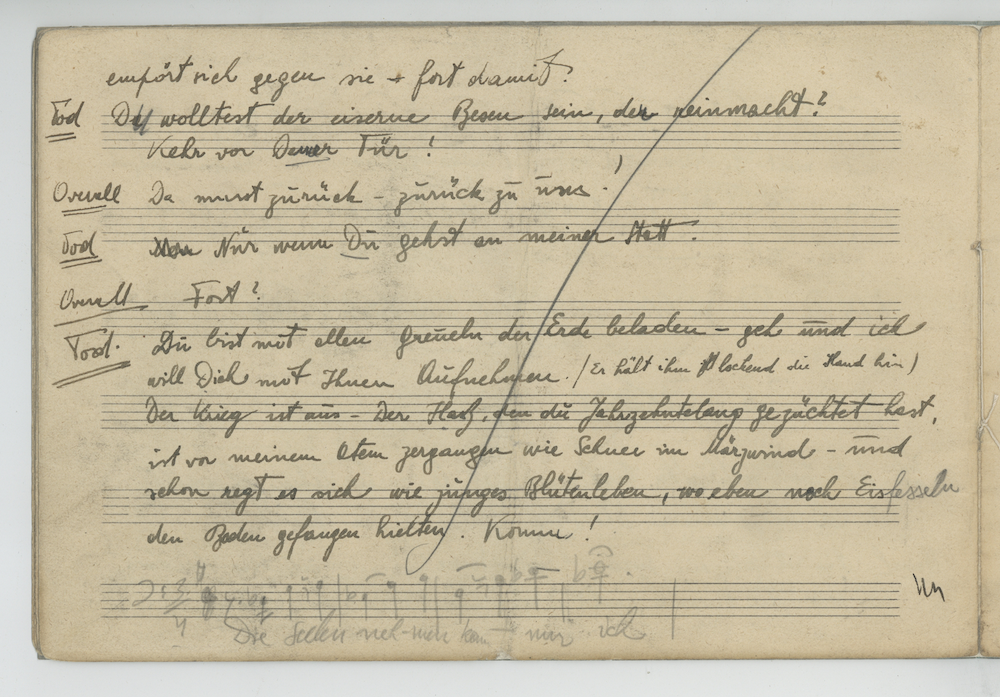
Kaiser von Atlantis oder die Tod-Verweigerung
(„Emperor of Atlantis or Death’s Refusal”)
—
First page of the Emperor of Atlantis score written in Theresienstadt.
Scans of the score belong to the Paul Sacher Stiftung, Basel, Sammlung Viktor Ullmann.
